cosmology
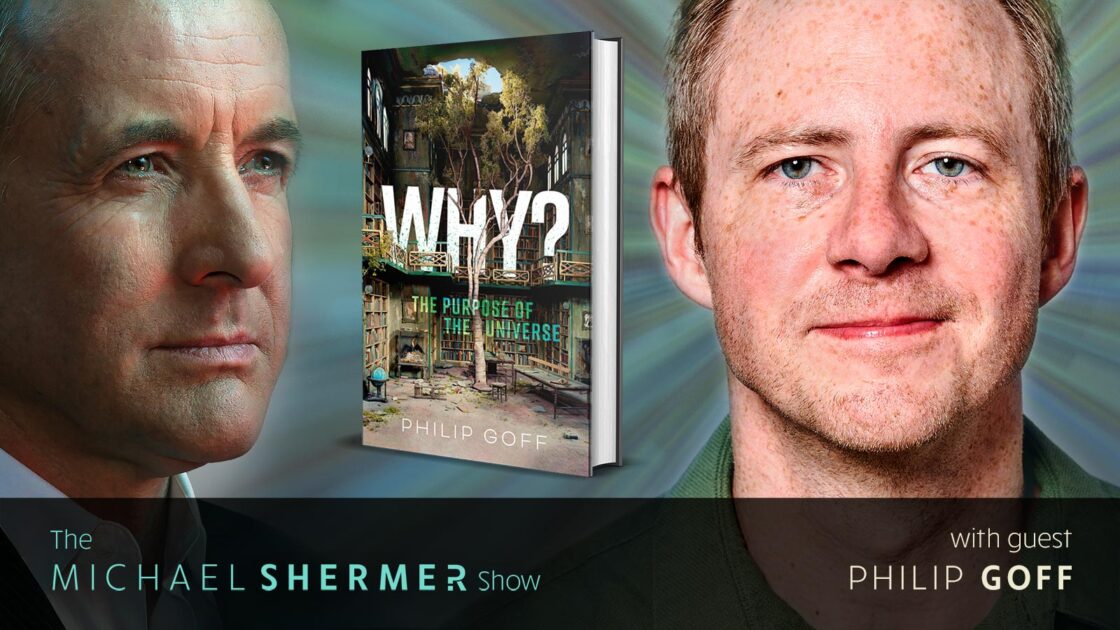
Shermer and Goff discuss: • living in a computer simulation • the universe itself as a conscious mind • cosmic purpose • fine-tuning • free will • consciousness (the ground of all being?) • morality and the Is-Ought Fallacy • What is my purpose in life? • religious vs. secular answers to the purpose question • awe and how to be spiritual but not religious.
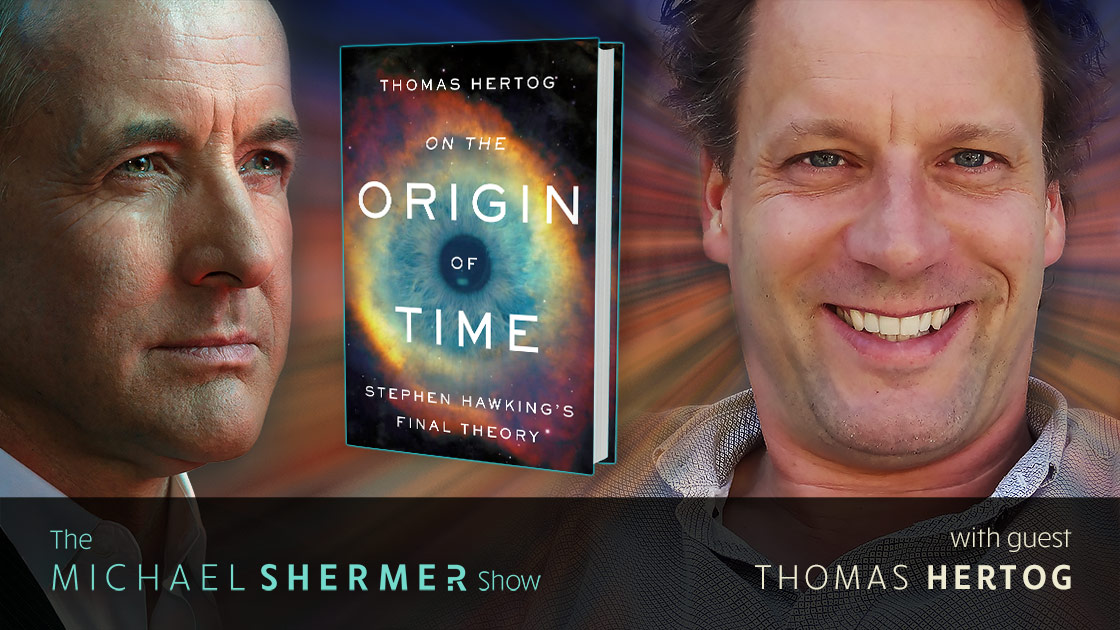
Shermer and Hertog discuss: what it was like working with Stephen Hawking • Darwinian model of cosmology • time • What banged the Big Bang? • cosmic inflation and multiple universes • how to reconcile Einstein’s relativity theory of gravity and quantum theory • Hawking’s no-boundary theory • why the universe appears designed • Feynman’s sum over histories approach to quantum physics • Is there purpose in the cosmos? • Why is there something rather than nothing?
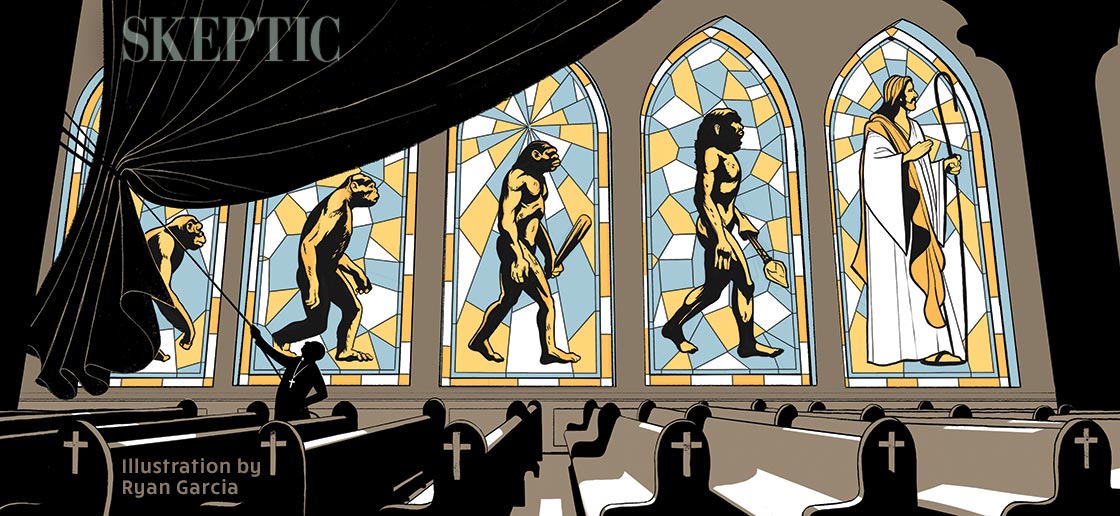
If you give Christians a choice between Jesus and Darwin by telling them that the theory of evolution means you have to be an atheist, they’re going to pick Jesus every time. In this article, Larry Arnhart argues that Christians should accept the theory of evolution not only because it’s true but also that it does not mean they have to give up their religion.
In episode 185 of Michael Shermer’s podcast, Michael speaks with Stephen Meyer about his best selling book: Return of the God Hypothesis: Three Scientific Discoveries that Reveal the Mind Behind the Universe. Shermer responds to each of his claims and a stimulating and enlightening conversation ensues.
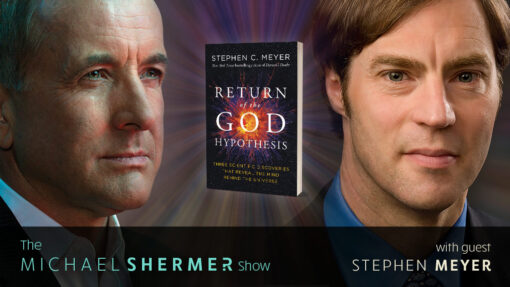
In episode 185 of Michael Shermer’s podcast, Michael speaks with Stephen Meyer about his best selling book: Return of the God Hypothesis: Three Scientific Discoveries that Reveal the Mind Behind the Universe. Shermer responds to each of his claims and a stimulating and enlightening conversation ensues.
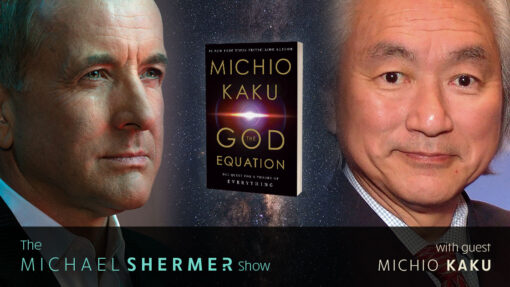
Synthesizing relativity and quantum theory would be the crowning achievement of science, a profound merging of all the forces of nature into one beautiful, magnificent equation to unlock the deepest mysteries in science. In this episode, Michael Shermer speaks with professor of theoretical physics Michio Kaku about: the Big Bang, black holes, worm holes, the multiverse, time travel, dark energy and dark matter, gravity, string theory, ETIs, meaning, and God.
Michael Shermer speaks with professor of theoretical physics Michio Kaku about The Quest for a Theory of Everything. PLUS: From now through April 10, 2021 (5 days only) all print and digital back issues Skeptic magazine are on sale for only $1.99 each!
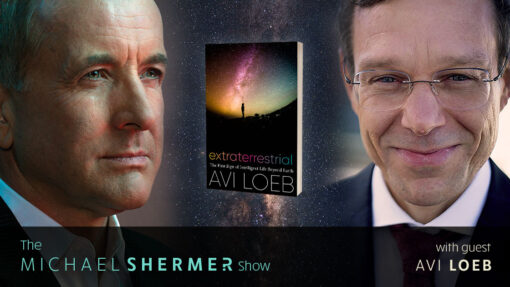
Shermer and Loeb discuss: anomalies in science and astronomy in particular • Galileo and Saturn • Signal Detection Theory • face on Mars • Is Oumuamua ETI in origin? • Intelligent Design • Carl Sagan and SETI • Law of Very Large Numbers • How many unknown knowns could account for Oumuamua? • Kip Thorne • gravitational waves • multiverse theory, and more…
In episode 157 of The Michael Shermer Show, Dr. Shermer speaks with Avi Loeb about his new book Extraterrestrial: The First Sign of Intelligent Life Beyond Earth which outlines his controversial theory and its profound implications for science, religion, and the future of our species and our planet.
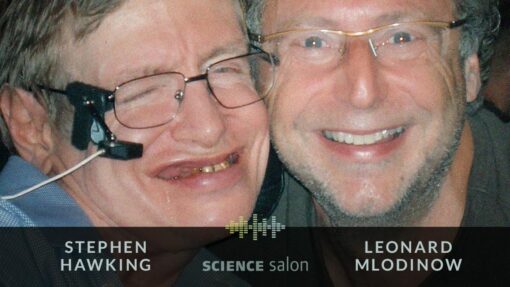
In Science Salon podcast # 132, Michael Shermer speaks with Leonard Mlodinow about his new book in which he recounts, in a unique and deeply personal portrayal, nearly two decades as Stephen Hawking’s collaborator and friend.
In this issue: The latest issue of Skeptic magazine (24.2) launches today in print and digital editions; PLUS Science Salon # 70 with cosmologist and inventor of the BICEP (Background Imaging of Cosmic Extragalactic Polarization) experiment Dr. Brian Keating.

In Science Salon # 70, Dr. Michael Shermer speaks with cosmologist and inventor of the BICEP (Background Imaging of Cosmic Extragalactic Polarization) experiment Dr. Brian Keating.
There have been many arguments for the existence of God. In this cover story from our just-released issue Skeptic magazine 23.4 (2018), Michael Shermer delves into the question that underlies all the arguments: Why is there something rather than nothing?

There have been many arguments for the existence of God. In this cover story from our just-released issue Skeptic magazine 23.4 (2018), Michael Shermer delves into the question that underlies all the arguments: Why is there something rather than nothing?
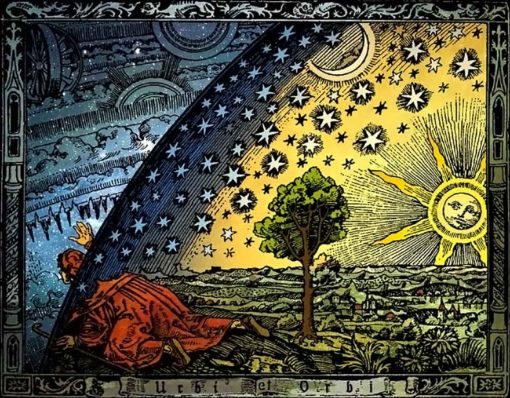
The notion that there can be more than one universe at first seems oxymoronic. Peter Kassan discusses the problematic notion of a multiverse arising from a highly speculative interpretation of quantum mechanics.

The notion that there can be more than one universe at first seems oxymoronic. In this week’s eSkeptic, Peter Kassan discusses the problematic notion of a multiverse arising from a highly speculative interpretation of quantum mechanics.
In this week’s eSkeptic, Leonard Mlodinow and Michael Shermer review You Are the Universe: Discovering Your Cosmic Self and Why it Matters, by Deepak Chopra and Menas Kafatos, 2017. (New York: Harmony Books, 288 pages)

Leonard Mlodinow and Michael Shermer review You Are the Universe: Discovering Your Cosmic Self and Why it Matters, by Deepak Chopra and Menas Kafatos, 2017. (New York: Harmony Books, 288 pages)
Guest writer Steve Cuno shares an insider’s view on the ethics of advertising in a world full of false claims.
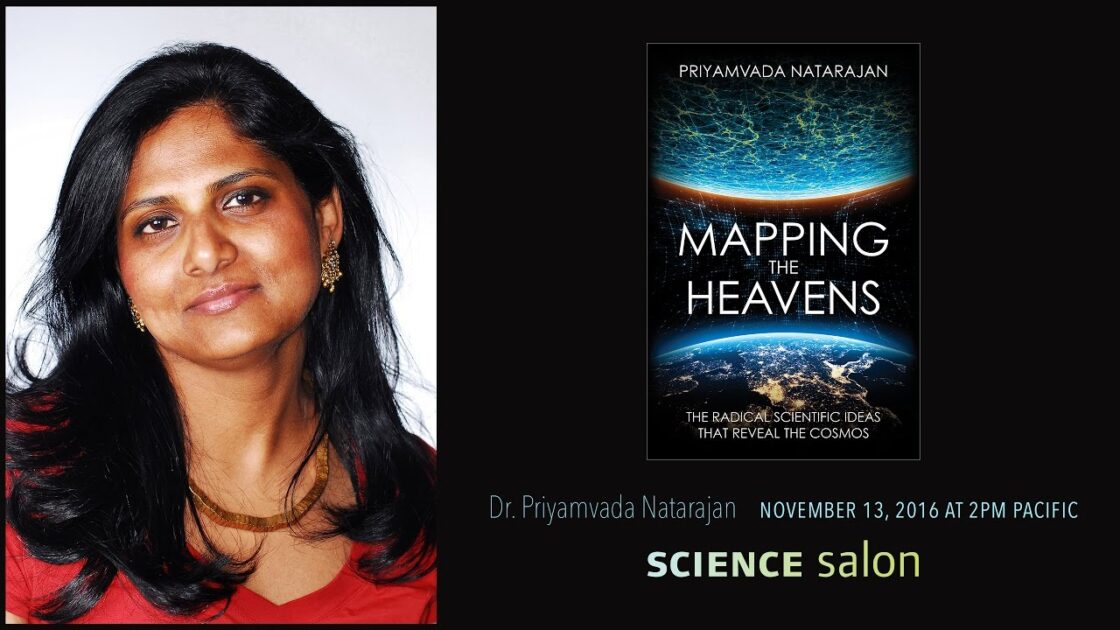
In this lecture based on her new book, Yale University cosmologist and theoretical astrophysicist specializing in dark matter, dark energy, and black holes, Dr. Priyamvada Natarajan, discusses some of greatest cosmological discoveries and ideas that have reshaped our universe over the past century.
NEXT →




















